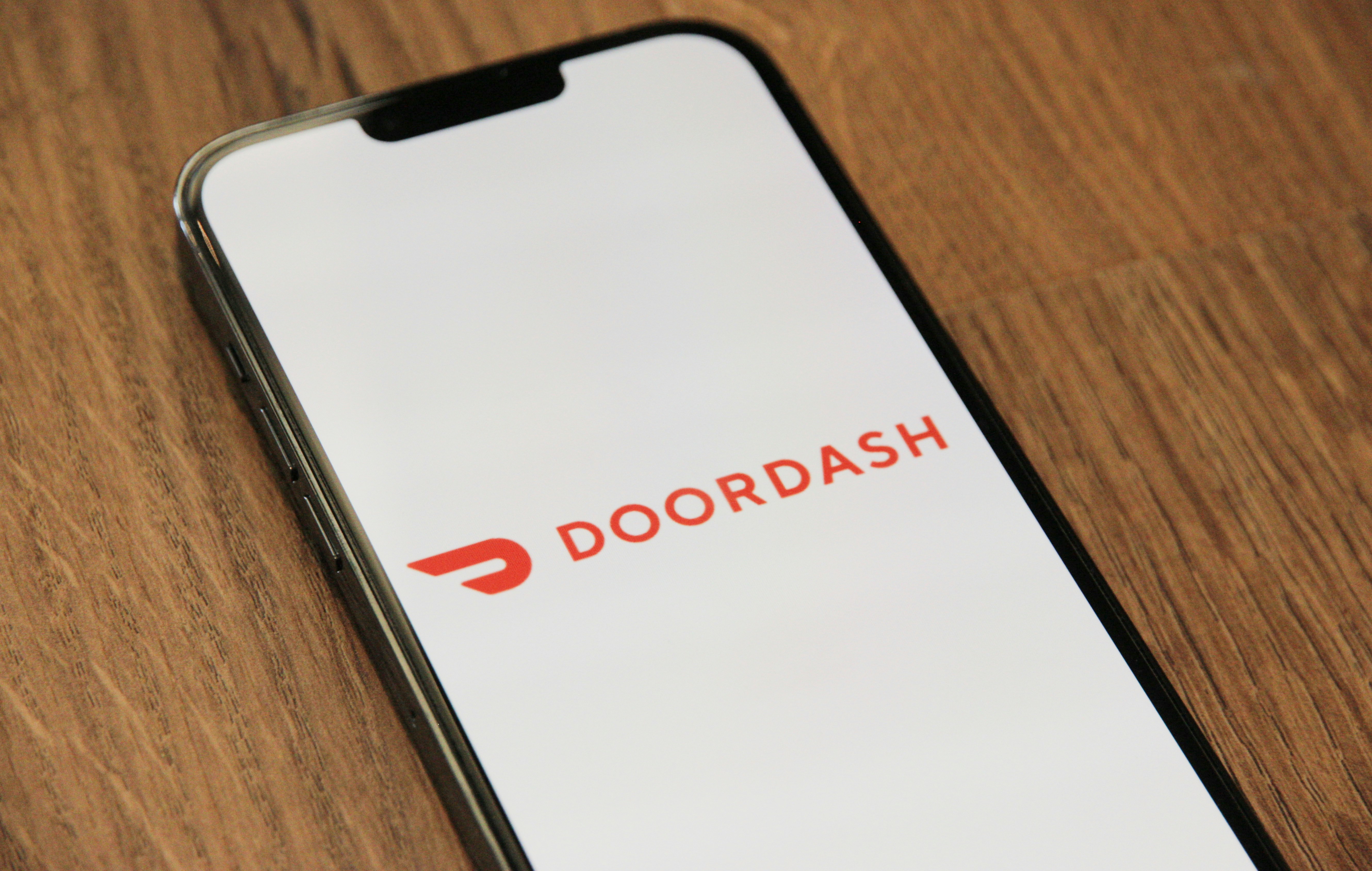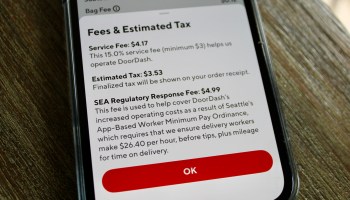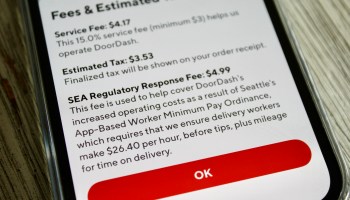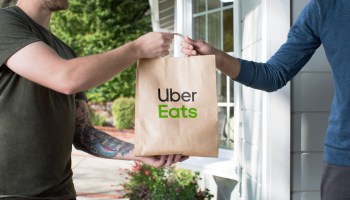
DoorDash dedicated two large paragraphs of its first quarter earnings report and spent several minutes on a call with analysts to voice opposition against controversial minimum wage laws for delivery drivers in Seattle and New York City.
The company’s comments reflect an ongoing battle between tech giants and supporters of legislation aimed at boosting pay for drivers that are classified as independent contractors.
In its earnings press release, DoorDash said the recently implemented regulations are “increasing costs to consumers, reducing sales to merchants, and providing less work to fewer people.”
Seattle’s law went into effect in January. DoorDash and Uber responded by adding a $5 fee for every order, paid for by the consumer. Demand has dropped considerably since then.
The tech giants also cranked up lobbying efforts in City Hall in a bid to change the existing regulations.
Now the Seattle City Council is considering a new proposal that could lower the wage standards set by the law, one of the first in the nation to set minimum pay requirements for delivery drivers.
“We believe dashing is an innovation in the labor market that many still do not understand, which is why some policies aimed at it damage individual access and choice, and reduce productive capacity in the economy,” DoorDash said in the release.
The company said wait times between orders for drivers in Seattle have more than tripled and the number of new drivers in New York City has fallen by 20% compared to before the new earnings standards took effect. New York City passed its own minimum wage regulations late last year; DoorDash also responded there by adding new consumer fees.
“These regulations clearly are having the opposite impact of what they intend to do,” DoorDash CEO and co-founder Tony Xu said on a call with analysts Wednesday.
Xu, who has a net worth of $2 billion, was asked by an analyst about the potential for other cities to adopt similar minimum wage policies. Here’s part of his answer, edited for brevity and clarity:
“This is kind of what we’ve been saying since going public and honestly what we predicted even 10 years ago when we started the company. Most governments and lawmakers want to be productive participants in working with businesses to provide a service that deserves to exist in cities. I mean, why wouldn’t you? Think about the billions of dollars or tens of billions of dollars that you’re adding to the local economic GDP, or the fact that you’re offering a service that consumers love, and a place where anyone can earn extra income on their own time. I mean, who wouldn’t want that?
And so I think most governments think like that. And that’s true across the world, not just here in the U.S. But there are a handful of cities where they’re antagonists to this perspective, and in some ways, they would prefer the opposite of creating positive GDP inside their cities.”
DoorDash, which went public in 2020, estimates that “the regulations reduced our Total Orders by less than 1%” in the first quarter.
The company set quarterly records for orders and revenue in the first quarter of this year, reporting $2.5 billion in revenue, up 23% year-over-year, with a net loss of $25 million. Total number of orders grew 21% to 620 million, beating estimates.
Its stock price fell 15% in after-hours trading Wednesday — possibly due to a disappointing profit forecast — but has doubled over the past 12 months.
DoorDash, the U.S. market leader in food delivery, said the current minimum wage law in Seattle requires the company to pay drivers at least $26.40 per hour of active delivery time, before tips and pay for mileage — well above the city’s $19.97 minimum wage.
The new proposal, CB 120775, would require companies to pay drivers at least $19.97 for each hour when making deliveries.
Working Washington, a nonprofit that helped pass the original legislation in Seattle, said in a press release last month that the new ordinance would “simply reduce worker pay well below minimum wage.” The organization cited payroll taxes and personal expenses that drivers must pay for.
Seattle and New York City will be closely watched as a testing ground for the impact of labor standards in a growing food delivery market facilitated by tech companies that tout the flexibility and independence offered by their platforms, but have come under scrutiny for their impact on workers and restaurants.
Seattle’s minimum wage legislation was passed in 2022. It’s part of several unique “PayUp” laws approved recently in Seattle. Other “PayUp” policies include an ordinance related to the worker deactivation process and a 10-cent per-order fee approved in November that will help fund the implementation and enforcement of the “PayUp” laws. Seattle also passed a sick leave law for delivery workers last year.





